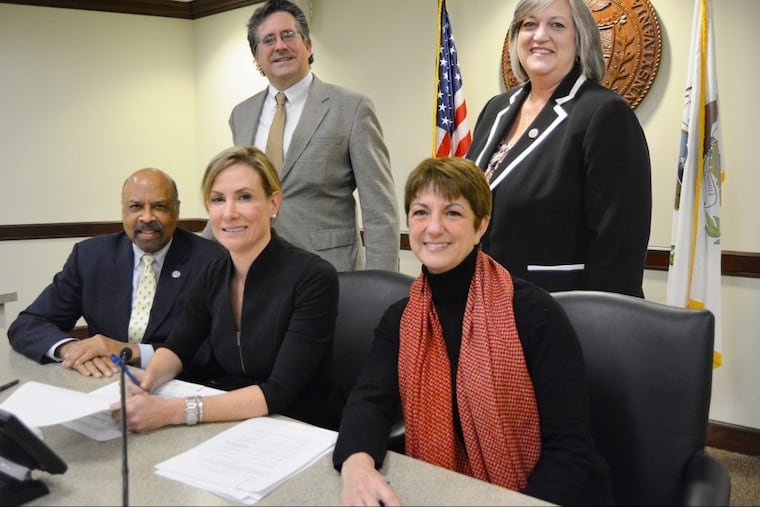Chester County invests pension funds in local venture capital
History suggests the practice can be perilous and lead to losses. At the same time, Chester ranks as the state's wealthiest county and it has kept up with funding pensions, unlike many other government entities.

The Chester County Retirement Board has agreed to invest $2 million in county retirement money in a new venture capital partnership, Venture Chesco, which will put the dollars in "emerging and growing" firms located in the state's wealthiest county, or willing to move there.
The money will be matched by another $2 million from Ben Franklin Technology Partners of Southeastern Pennsylvania, an early-stage tech-company funding group that has been working to broaden its funding base to reduce its dependence on state subsidies. Ben Franklin will manage Venture Chesco, and seek new firms to encourage the "growing innovation culture" in the county, Ben Franklin president RoseAnn Rosenthal said in a statement.
Chester County can afford the investment because its retirement fund is relatively solvent, the economy is growing, and a similar Venture Capital for Bucks County fund (VC4BC) serves as a model, Michelle Kichline, the elected Chester County Commissioners' chair and a retirement board member, told me.
"The competition to attract these young companies has become so intense" that Chester County has been planning since 2015 to set up a venture fund, as part of its Vista 2025 economic development plan, Kichline added. "We think the [retirement] fund is in a solid place. We're still the fastest-growing county in the commonwealth. This is going to be one more tool to attract young companies down here."
The Bucks County venture fund also includes $2 million in county pension money and $2 million from Ben Franklin, said Bucks Commissioner Robert Loughery. He said the fund is designed to back companies emerging from local incubators such as the Pennsylvania Biotechnology Center of Bucks County, in Buckingham Township. Early VC4BC investments include a position in OrthogenRX, a Doylestown firm developing a device for treating arthritis. "After three years, we are just starting to get back our money," he added. Bucks expects an initial payment sometime in 2018.
Chester County attracts entrepreneurs, and offers "incubator" locations and technical assistance, but finding investors is "a real challenge," a fellow commissioner and retirement board member, Kathi Cozzone, added in a statement. Another commissioner and retirement board member, Terence Farrell, said the $2 million is only "a small percentage" of the county's pension millions, and offers "potential return on investment" while also boosting business.
The retirement plan managed $386 million, and faced liabilities totalling $437 million at the end of last year, according to fiduciary data on the plan published in the county's most recent annual financial report (see p. 80).
Chester County assumes its overall pension investments will return 7.5 percent a year over time, net of fees and expenses; it expects a relatively modest 5.5 percent from the category including venture capital and other private investments. Ben Franklin says "they will probably be consistent with that," Kichline told me. Given the strong economy, "we don't think this is a strong risk."
Ben Franklin officials weren't immediately available for comment on their past returns.
Chester County's pension liabilities trailed its pension assets by $51 million, or 12 percent, compared with a gap of more than 50 percent for the pension system in Philadelphia, where retirees outnumber police and other workers who pay a portion of their wages into the fund. In Chester County there are more than four working employees for every retiree. Unlike city and township plans, county pension plan data in Pennsylvania are not audited by the state auditor general.
Chester County's reported pension funding ratio is also stronger than the audited state workers' (SERS) and state teachers' (PSERS) pension funds.
When they were more solvent in the 1980s, SERS and PSERS tried to set up their own local investment and venture capital funds to spur area job growth. Among other investments, they committed $60 million to a Norristown soft-drink company that went bankrupt, causing the loss of the pension funds' investments. SERS and PSERS now hire professional venture investors who buy early-stage companies in Silicon Valley, New York, Boston, and other venture capital hotbeds, as well as some in Pennsylvania.
Chester County is triple-A rated by Moody's Investors Service and other major credit-rating agencies, a sign Wall Street is confident the county can pay its pensions well into the future.